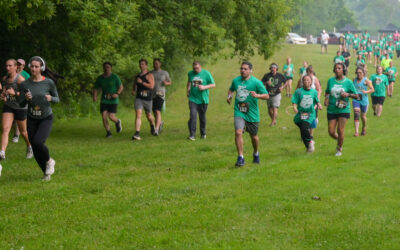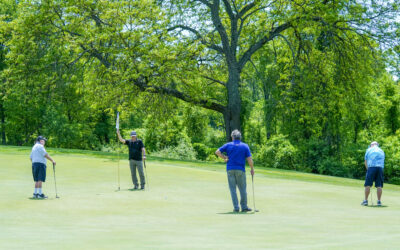Rice Week 2022
“To be active in harvesting Rice, it takes the Community, it takes a Tribe to do this. That is what food sovereignty is: Bringing back those ceremonies and educating Tribal Members on what we did lose, like fishing and hunting and collecting our seeds and harvesting.”
NHBP Food Sovereignty Coordinator and Tribal Member Nickole Keith has dedicated much of her time to sharing her passion and educating fellow Tribal Members on traditional foods and lifeways since joining the NHBP Culture Department.
“Food always brings you together. It doesn’t discriminate. Usually I am always in the kitchen, so it is different to be on the other side and help coordinate it now,” she said. “I have realized how much I missed and it has been different now that I have been able to see the teachings.”
The annual Rice Week celebration to teach the traditions of harvesting and finishing Mnomen {Wild Rice} kicked off Aug. 25 with a sunrise ceremony followed by a breakfast prepared and served by the food sovereignty team.
Jody Gzhadawsot Mattena, a Member of the Citizen Band Potawatomi and Lifeways Consultant who works with Keith, traveled from Tennessee with her family for their first Rice Week. Though her Tribe is located in Oklahoma, she feels that “home is here.”
“Being up here and learning, and with my kids learning, it’s like everything. We are happy to be here,” Mattena said.
Community Member Daniel Hinmon shared the story, passed down through oral tradition, of the way the Rice was discovered and then used as one of the main food sources. Harvesters would bundle their Rice to protect against storms and preserve the seeds, he explained, and they would use different colors and styles to differentiate between the families. Bundling also prevented various birds from eating it.
“This practice was lost for a while, but we are trying to pick it back up and preserve it,” Hinmon said.
Yebishawn OldShield, Tribal Member with the Match-E-Be-Nash-She-Wish Band of Potawatomi Indians, demonstrated Mnomen harvesting, showing that through the use of a Potawatomi stick, or knockers, one could remove the Rice from the stalks, after which the Rice must dry for at least three or four days. Rice Week attendees used parchment pails to remove the husk, which is the outer portion of the Rice, and could try winnowing, hand sorting and Dancing on the Rice as well.
The Department of Public Works recently built “The Mnomenator,” a high-tech machine that cuts down on 10 days’ worth of work by removing the Rice husks mechanically. The machinery does not replace the relationship between the Rice and the people though.
“The Rice Chief told us, we have to have a relationship with the Rice so it is appreciated. Anything in human nature that we are not appreciative to, it disappears,” said NHBP Culture Specialist and Tribal Member Kevin Harris II.
Those who chose to floated the Nottawa Creek together in kayaks and canoes. Together they paddled downstream amongst the Mnomen, where Members harvest the Rice that feeds the Tribe.
Wild Rice is one of the four main food groups, which also include strawberries, corn and wild game. As such, Rice Week is a large part of the revitalization of the Tribe and its traditional ways, Harris believes.
“It is all here, we just have to utilize it. That way we maintain our sacredness and our history and our culture,” Harris said.
Although Rice Week was unexpectedly cut short, many lessons of the land were taught and much time was still spent together, growing and learning.
“We are supposed to take care of the land and the land takes care of us,” Harris said. “Being Anishinaabe, that is our main duty is to be stewards of the land. What is more stewarding than harvesting the food that the Creator gave us?”




0 Comments